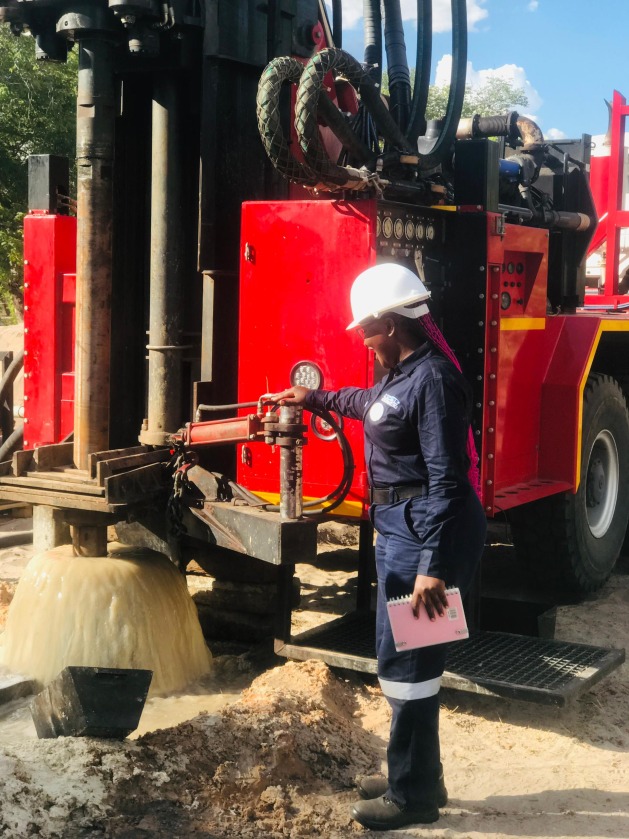
PRETORIA, South Africa, Jun 7 2007 (IPS) – In the vast terrain of groundwater management, a pressing question often arises: are we really providing women with the necessary tools and opportunities to thrive, or are we simply trying to fill the gender question? gap without addressing the root causes?
Despite significant progress towards gender equality in various sectors, including science and technology, the under-representation of women in groundwater-related fields remains alarmingly high.
Recent statistics show that women make up only 22% of the global groundwater population, a clear indication of a persistent gender gap that requires immediate attention. This gap suggests that while efforts are being made to increase women’s representation, there may still be systemic challenges and barriers that hinder true equality and inclusion in the field.
While progress has been made in closing the gender gap in recent years, statistics reveal a stark reality of the barriers women still face in entering and thriving in groundwater-related professions.
Despite their equal abilities and potential to contribute to the field, systemic barriers such as limited opportunities for career growth and widespread gender bias persist, hindering their full participation. In addition to these structural obstacles, women in groundwater often face cultural norms and stereotypes that reinforce the idea of male dominance in scientific and technical fields.
For example, it is assumed that women are suited to lighter tasks, while more physically demanding tasks, such as drilling or engineering work, are often associated with men.
Even when women are hired in these fields, they face resistance when they are recognized and respected for their authority and expertise. In some cases, individuals may refuse to follow directives from women because they view them as less authoritative solely because of their gender. This resistance not only undermines women’s contributions, but also perpetuates the belief that women have no place in leadership or decision-making positions.
Reflecting on her experiences, Alina Kadhila, a hydrogeologist at Namibia Water Corporation, notes: “While progress has been made in recognizing the importance of gender diversity, there is still a long way to go.” Societal norms and cultural beliefs cast a heavy shadow on efforts to promote gender equality.
Deep-rooted stereotypes perpetuate the idea that certain professions are inherently male domains. “To truly address these challenges,” she argues, “we must challenge stereotypes, dismantle systemic biases, and create opportunities for women to thrive,” Alina emphasizes.
Phera Ramoeli, Executive Secretary of the Permanent Okavango River Basin Water Commission (OKACOM), echoed Kadhila’s sentiments and emphasized the need for an integrated approach to gender equality and equality.
“Equality between men and women is not just about promoting the interests of one gender over the other,” he emphasizes. “It’s about creating a level playing field where everyone has an equal opportunity to succeed.” Ramoeli advocates for the empowerment of both girls and boys, and fosters a culture of inclusivity that transcends traditional gender norms.
Furthermore, Ramoeli emphasizes the importance of recognizing the inherent value of diversity for the groundwater sector. “Diverse perspectives promote innovation and drive progress,” he says.
By embracing gender diversity, organizations can tap into a broader talent pool, resulting in more creative problem solving and sustainable solutions to complex challenges. Encouragingly, as awareness grows about the benefits of diversity, there is growing momentum toward fostering inclusive environments in which all individuals, regardless of gender, can thrive.
Addressing the challenge of societal norms and cultural beliefs that perpetuate gender differences requires a paradigm shift and multifaceted strategies. In the groundwater field, addressing the challenges rooted in societal norms and cultural beliefs requires a targeted approach.
It starts with reshaping perceptions from the ground up. Implementing gender-sensitive education programs within hydrogeology and related disciplines can dispel stereotypes and instill values of inclusivity at an early stage. Integrating these programs into academic curricula will pave the way for a future generation of hydrogeologists who understand and advocate gender equality.
Within the professional sphere, initiatives aimed at creating inclusive environments are paramount. Groundwater organizations must implement policies that meet the diverse needs of their workforce, especially women.
Flexible work arrangements tailored to the demands of fieldwork and family responsibilities can remove barriers to entry and retention. Mentorship programs that pair women with experienced professionals provide guidance and support, nurture talent and promote career development.
Equally essential is ensuring equal opportunities for pay and advancement, highlighting the value of the contribution of every individual, regardless of gender. By cultivating a culture of inclusivity and support, groundwater institutions can increase the collective expertise of all professionals, driving innovation and progress in the field.
The journey to true equality involves more than just providing access; it requires dismantling systemic barriers and fostering an environment where every individual, regardless of gender, can thrive. It requires efforts to challenge deep-seated biases, reform societal norms, and advocate for inclusive policies and practices.
As we walk this path, it becomes clear that real progress does not lie in isolated initiatives, but in holistic, systemic change. It means providing women with the tools, resources and opportunities they need to excel, while simultaneously addressing the underlying structures that perpetuate gender disparities. It requires a commitment to fostering an inclusive culture that values diversity and empowers individuals to reach their full potential.
Ultimately, the goal of gender inclusivity is not simply to close the gender gap, but to create a professional ecosystem where gender is no longer a factor that hinders one’s ability to succeed.
It is critical to proactively address gender bias, promote mentorship and networking opportunities, and ensure that women’s contributions are recognized and valued equally. Only then can we honestly say that we are not only closing the gender gap, but also actively equipping women and forging a future where equity and equality are not just a goal, but a lived reality.
Ashley Malepe is a communications intern at the SADC-Groundwater Management Institute
© Inter Press Service (2024) — All rights reservedOriginal source: Inter Press Service







